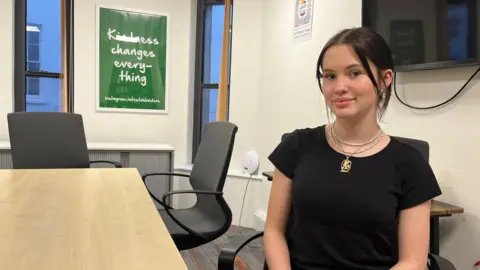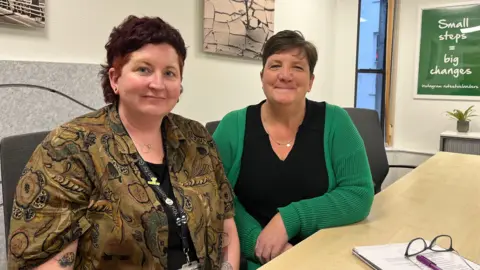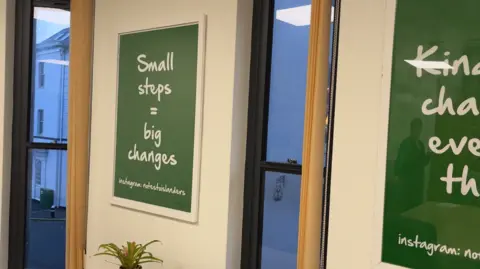Why are young people anxious and how can we help?
 BBC
BBCFive young people seeking support for their emotional health and wellbeing are being referred to The Youth Commission for Guernsey and Alderney every week.
The charity has sought to meet that need after receiving a three-year grant of £300,000 from the Social Investment Fund and the Channel Islands lottery in 2021.
Three Educational Mental Health Practitioners (EMHPs) have been trained and delivered sessions for children and families.
Now the Youth Commission is looking for further funding to continue the programme.
But what is causing the stress young people in the island are feeling?
'You can never get away'
Teenager Amelie is a member of the Commission's Youth Forum. She said many young people felt under considerable pressure.
"Everyone is stressed about school, then when you get home and you're tired and burnt out, there's more," she said.
"A lot of it stems from social media. I've got class chat notifications constantly pinging on my phone and everything is right on top of me.
"In Guernsey, you can't go out without seeing people you know. Everything's really full on, and you can never get away from anything. There's constant pressure."
Amelie said schools did not receive enough recognition for the support they provided to young people.
But she said groups which helped young people with specific concerns, like loneliness, caring for family or grief, before crisis point, were really valuable.
And that is where the Youth Commission's work comes in, she said.

The Guernsey Young People's Survey in 2022 indicated a decline in children aged between 10 and 15 saying they had high self-esteem and were glad to be who they were.
In response, the Youth Commission applied for funding for three members of staff to gain an EMHP qualification through Southampton University.
Once trained, they delivered individual mental health sessions for 140 young people and 95 group workshops for parents and children, advising on problem solving, managing anxiety and depression and improving emotional wellbeing.
The commission wants to continue delivering sessions and is looking for further funding to do so.
Angie Robinson, an educational therapist specialising in psychological safety in schools, said young people should be able to ask for help and make mistakes without fear.
"What helps young people with the stress and anxiety of their daily lives is social connection, with good mentors," she said.
"We need to create pockets of joy, where young people can enjoy meaningful moments of connection, with other people doing worthwhile things that are healthy and safe."
She said academic stress and social media pressure was compounded by global concerns like the cost of living crisis, which puts financial strain on their families.

"That trickles down to our young people," she said.
Ms Robinson urged parents and grandparents to give love and security.
She advised: "Encourage sharing and really listen without trying to problem-solve. Validate those emotions and ask open-ended questions. Model healthy coping strategies when dealing with your own anxiety."
"It doesn't have to take hours. You can spend 10 minutes with a child, having a deep conversation or asking their opinion, and it can be very meaningful."
